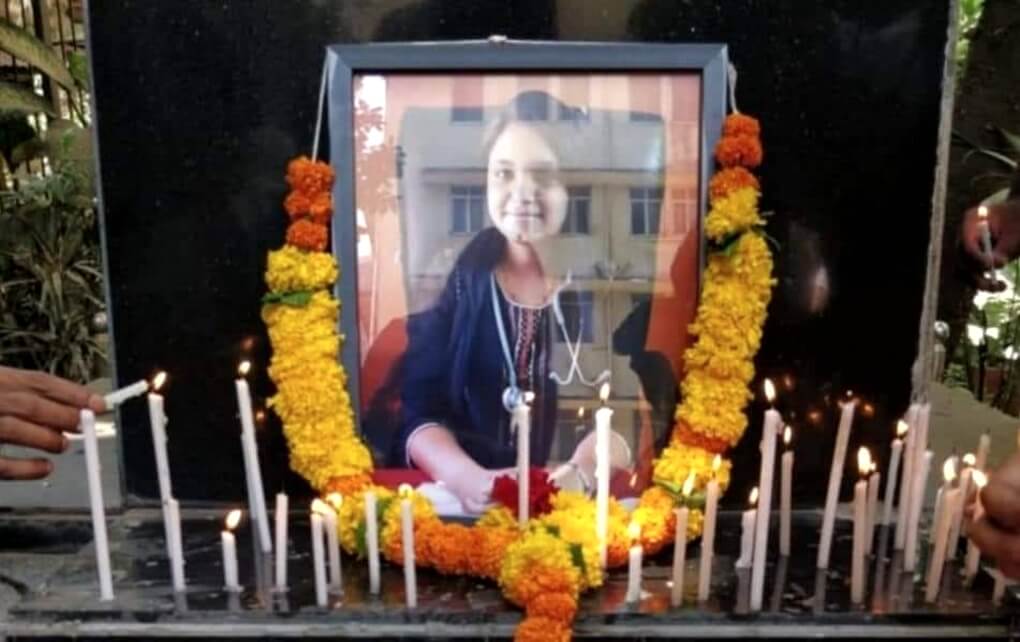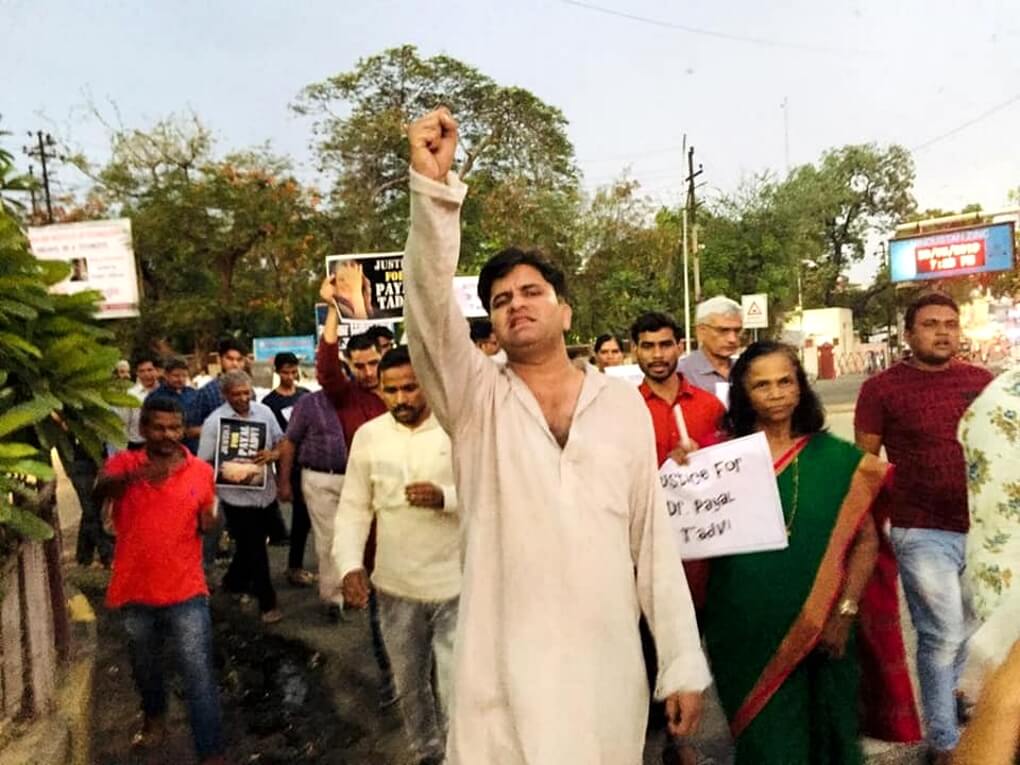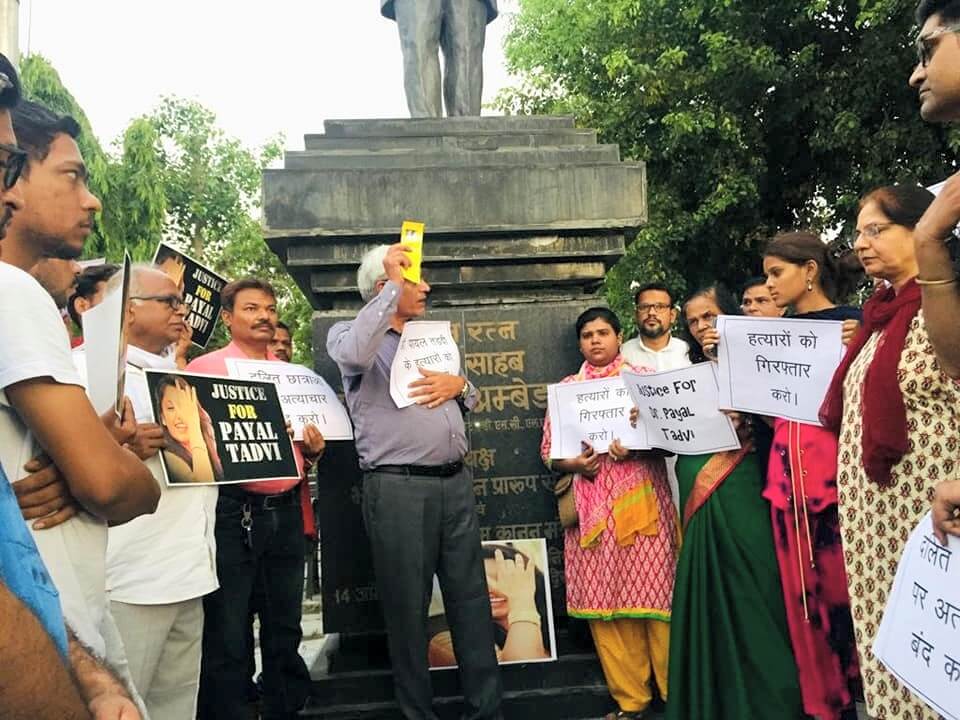Justice For Dr Payal Tadvi

THE suicide of Dr Payal Tadvi, a promising young doctor from the Adivasi Muslim Tadvi Bhil Scheduled Tribe community, following casteist harassment by three of her seniors at the BYL Nair Hospital in Mumbai, is an institutional murder like that of Rohith Vemula. Dr Payal Tadvi was subjected to taunts about reservations, and her seniors reportedly wiped their feet on bed after visiting the toilet and publicly humiliated her repeatedly. Her husband, a doctor at the same hospital, raised the matter with the unit head of gynaecology, but after this the casteist harassment only increased. Finally, Dr Payal Tadvi was driven to take her life.
CPIML stands by the family of Dr Payal Tadvi in their quest for justice, to ensure that those responsible for perpetrating and condoning the harassment that led to her death are prosecuted under the Prevention of Atrocities Act and punished. We also demand institutional measures to acknowledge, prevent, and tackle caste-based harassment in educational institutions including medical colleges and hospitals. The tendency to deny the very existence of such casteism, and the slanders against caste-based reservations, are themselves symptoms of such casteism.

A candle-light march to protest against this incident was organized on 28 May 2019 at Ambedkar Circle, Court Chowk in Udaipur. Speaking on the occasion, writer Kusum Meghwal said that Manuvad is predominant even in this 21st century and this Manuvadi thinking is being encouraged by the governments in power today. CPM leader Rajesh Singhvi said that it is a matter of grave concern that this casteist mentality is prevalent even in the field of medical studies where one has to go on to give medical to treatment to people from all castes and religions without discrimination, and democracy-loving people of India should strongly raise their voice against this. BTP leader BL Chhanwal said that in the past also such incidents have taken place against dalit and adivasi students. He reminded the people that Rohit Vemula and Delta Meghwal did not get justice and that removed all fear from the minds of people with casteist thinking, thus giving a free rein for Brahminical thinking to flourish even in institutions of higher education.
Social worker and advocate PR Salvi said that the oppressed dalit, adivasi and backward sections must build unity against such forces which are being protected by the ruling powers. Rinku Parihar pointed out that this casteist mentality is rampant even in Rajasthan, resulting in attacks on dalit grooms who ‘dare’ to sit on a horse and sexual violence against women from oppressed sections. Prof Hemendra Chandaliya said that in view of the casteist abuse hurled at Payal by her seniors (which did not stop even after Payal’s mother complained to the college administration) it is necessary that the Rohith Act be passed. Dr Bharat Birwal emphasized on the urgent need to fight caste-based discrimination in institutions of higher education. Himalay, Babulal Ghavri, Dr Baldev Meena and Bhim Army leaders Suresh and Lala Meghwal also spoke on the occasion. Suresh said that Bahujan youth must ensure widespread and unbroken unity to fight against caste-based oppression.
The protesters held a candle march and raised slogans demanding the immediate arrest of those guilty for Payal’s suicide and action against Payal’s Head of Department. They also demanded that the Medical Council of India should impose a ban without delay on the medical practice of those accused persons who are doctors.

Charu Bhawan, U-90, Shakarpur, Delhi 110092
Phone: +91-11-42785864 | +91 9717274961 E-mail: info@cpiml.org

